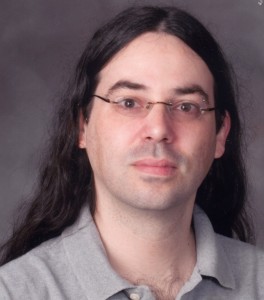 Two weeks ago, I blogged about Philip Schwadel’s latest research that shows that while education does influence religion (religious participation, belief, and affiliation) the nature of that influence is far more complicated than the commonly held view suggests. My original post was based on a summary of his findings. After writing that post and engaging in a few discussions, I sought out a copy of the journal article: “The Effects of Education on Americans’ Religious Practices, Beliefs, and Affiliations,” which was published online on July 28, 2011. While a thorough analysis of his research is a worthy undertaking, it is beyond the scope of a blog post. With that in mind, I offer these excepts from the results section of his article:
Two weeks ago, I blogged about Philip Schwadel’s latest research that shows that while education does influence religion (religious participation, belief, and affiliation) the nature of that influence is far more complicated than the commonly held view suggests. My original post was based on a summary of his findings. After writing that post and engaging in a few discussions, I sought out a copy of the journal article: “The Effects of Education on Americans’ Religious Practices, Beliefs, and Affiliations,” which was published online on July 28, 2011. While a thorough analysis of his research is a worthy undertaking, it is beyond the scope of a blog post. With that in mind, I offer these excepts from the results section of his article:
- For each year of education beyond 7 years of education, the relative risk of reporting there is truth in one religion decreases by 15% .
- Each year of education beyond seven years of education reduces the relative risk of reporting that the Bible is the actual word of God by 13%.
- The odds of switching to a mainline Protestant denomination increases by 13% for each year of education beyond 7 years of education.
- The odds of attending religious services in the last 7 days increases by 15% for each year of education beyond 7 years of education.
- Each additional year of education is associated with more than a 23% increase in the odds of volunteering for a religious group.
- The odds of saying that a good Jew or Christian must follow the teachings of their church or synagogue decreases by more than 9% for each year of education beyond 7 years of education.
- For each year of education beyond 7 years of education, the odds of supporting atheists’ right to make public speeches against religion increases by 20% and the odds of opposing requiring the Lord’s Prayer and Bible verses in public schools increases by 14%.
So What?
Being more educated does not mean being less religious. It does mean being more open minded and less likely to listen to religious authority unquestioningly, being more likely to affiliate with a mainline denomination, and being more likely to support the rights of those affiliated with other religious traditions.
For Reflection:
How can progressive religious congregations, networks, and denominations spread the message within the larger culture that they offer an alternative to the “Religious Right” that is consistent with Schwadel’s findings and the United Church of Christ’s affirmation that “our faith is 2000 years old but our thinking is not”?